Episodes
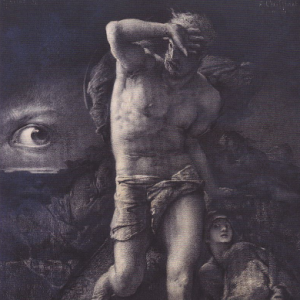
Tuesday Sep 18, 2018
Veritatis Splendor and Conscience with Dr. Kent Lasnoski
Tuesday Sep 18, 2018
Tuesday Sep 18, 2018
Last week theologian Dr. Jeremy Holmes gave us an introduction to St. John Paul II’s 1993 encyclical, Veritatis Splendor, The Splendor of Truth.
St. John Paul II wrote the encyclical in response to trends in moral theology that for the most part denied that morality can be universal, objective, and permanent.
He critiqued any doctrines that would “grant to individuals or social groups the right to determine what is good or evil.”
Yet we make judgments about good and evil every day and the source of those judgments is our consciences.
Dr. Kent Lasnoski teaches moral theology at Wyoming Catholic College and has for many years been a student of St. John Paul II and his ethical writings. In this edition of The After Dinner Scholar, he explains the nature of conscience in Pope St. John Paul's writings.
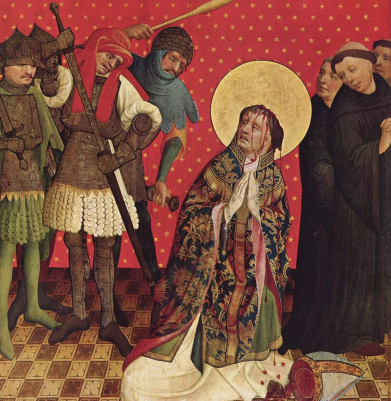
Tuesday Sep 04, 2018
Courage, Martyrdom, and "Murder in the Cathedral" with Prof. Kyle Washut
Tuesday Sep 04, 2018
Tuesday Sep 04, 2018
I see nothing quite conclusive in the art of temporal government,
But violence, duplicity and frequent malversation.
King rules or barons rule:
The strong man strongly and the weak man by caprice.
They have but one law, to seize the power and keep it.
And the steadfast can manipulate the greed and lust of others.
The feeble is devoured by his own.
Those words are from T. S. Eliot’s play “Murder in the Cathedral,” the story of tSt. Thomas Becket's martyrdom. Becket was King Henry II pal who he appointed Chancellor and then Archbishop of Canterbury. As Chancellor, Becket was Henry’s man to do the king’s will. But when he became Archbishop, something changed. He realized that he now needed to be God’s man, a decision that—given the outcomes—enraged Henry.
Prof. Kyle Washut discussed Eliot, Thomas, and what he called “Perfected Courage” at the 2018 Wyoming School of Catholic Thought. Prof. Washut is our guest this week on The After Dinner Scholar.
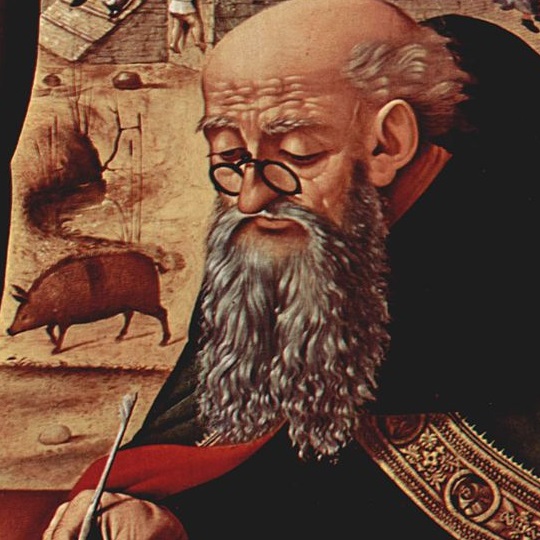
Tuesday Aug 28, 2018
Lecture - St. Antony and Purifying Courage by Prof. Kyle Washut
Tuesday Aug 28, 2018
Tuesday Aug 28, 2018
For Achilles, Hector who killed Patroclus was the great enemy. For Antigone, it was Creon the tyrant. For Aristotle, it was those attacking the city. Each case called for courage. But in the Christian era, something changed.
When Christians in the fourth century thought of courage, St. Antony came to mind. He led no army, fomented no rebellion against human tyrants, and did not defend any city. Instead Antony was a paragon of the courage it takes to battle the world, the devil, and the flesh, that is, our inner self, our sin nature.
At the Wyoming School of Catholic Thought, Prof. Kyle Washut lectured on St. Athanasius’ masterful “Life of Antony.” Here are his comments on that life and this new way of understanding courage.
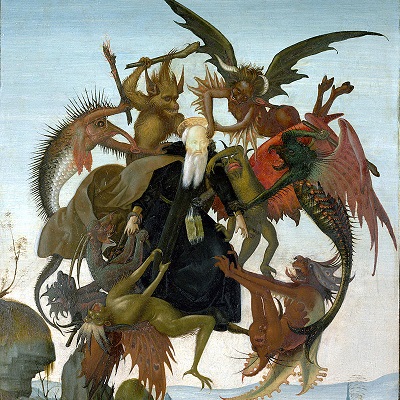
Tuesday Aug 28, 2018
St. Antony and the Courage That Purifies with Prof. Kyle Washut
Tuesday Aug 28, 2018
Tuesday Aug 28, 2018
“When St. Antanasius composed Life of Antony in 365,” noted Prof. Kyle Washut at the 2018 Wyoming School of Catholic Thought, “he produced an instant best seller and a new genre of literature.”
While Life of Antony was a sensation in the fourth century, Prof. Washut noted that for twenty-first century readers—even those who share Antony’s Christian faith—the book can “be difficult if not outright off-putting” and “even repulsive.”
Is the problem something about Antony or is it something about us? How do we understand Antony’s life, mission, and courage in all those battles with the devil and his demons?
Prof. Washut is our guest this week on The After Dinner Scholar.
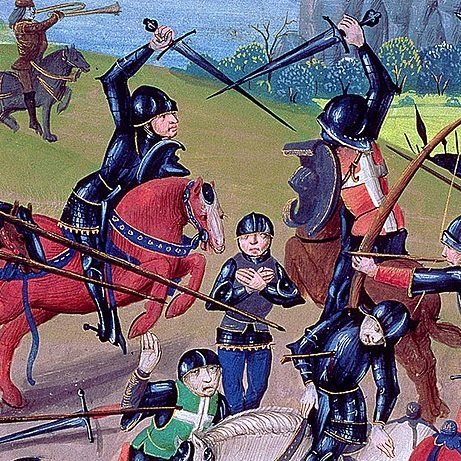
Tuesday Aug 21, 2018
Tuesday Aug 21, 2018
His dad was king of England… or at least sort of. That being the case, how does a usurper’s son create legitimacy?
After the death of Henry IV of England, Prince Hal as everyone has been calling him, has a plan to establish himself on the throne as Henry V despite his shaky claim to the crown. His success depends on careful planning, courageous battling, and--to his surprise--divine Providence.
At the Wyoming School of Catholic Thought in June, Dr. Glenn Arbery, president of Wyoming Catholic College explained how Shakespeare told the tale of Prince Hal in the play "Henry V."
Here are Dr. Arbery’s remarks in their entirety.
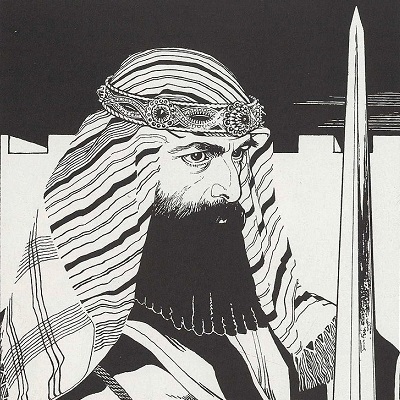
Tuesday Aug 07, 2018
Tuesday Aug 07, 2018
“Have I not commanded you?” God said to Joshua, “Be strong and of good courage; be not frightened, neither be dismayed; for the Lord your God is with you wherever you go.”
The Bible, to no one’s surprise, is filled with examples of courage. Moses stood up to Pharaoh, David ran to battle Goliath with nothing but a sling and a few stones, Elijah called out King Ahab, Peter stood up to the Sanhedrin and eventually the Roman authorities who put him to death. G. K. Chesterton, commenting on Jesus praying in the Garden of Gethsemane said, “Alone of all creeds, Christianity has added courage to the virtues of the Creator.”
At the Wyoming School of Catholic Thought in June, Dr. Jim Tonkowich spoke about the meaning of courage in the Bible, focusing on the Old Testament story of Joshua.
Here are his remarks in their entirety.
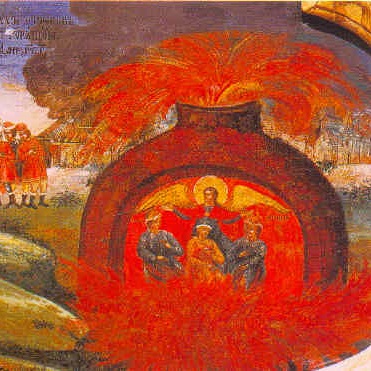
Tuesday Aug 07, 2018
Courage in the Face of Flood, Flames, and Fangs with Dr. James Tonkowich
Tuesday Aug 07, 2018
Tuesday Aug 07, 2018
The religions of the Babylonian Empire and the Persian Empire that followed it were, from a Jewish point of view, idolatry pure and simple. Bowing down to a giant golden image, praying only to the king were unacceptable to those who worshipped the Lord, God of Israel.
Daniel along with his companions—Shadrach, Meshach, and Abednego—however, were captives in those empires. Because of their intelligence and the grace of God, they were given special privileges and responsibilities as part of the government of the empires. But they could have been demoted from satrap to slave in about two seconds. Or from satrap to pile of hot ashes or lion food in just a bit longer than two seconds.
At the Wyoming School of Catholic Thought in June, Dr. Jim Tonkowich lectured about the meaning of courage in the Bible and then led a discussion about courage in the Book of Daniel.
In this podcast, Prof. Kyle Washut interviews Dr. Tonkowich on the topic of courage in the Bible and the Book of Daniel.
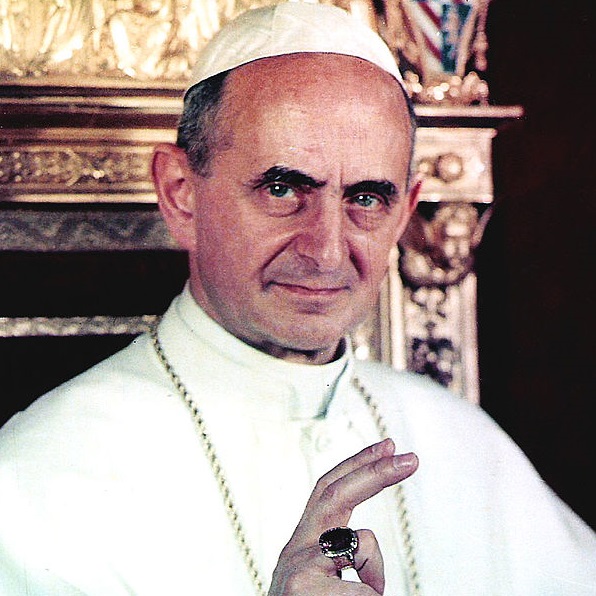
Tuesday Jul 31, 2018
Tuesday Jul 31, 2018
For most American Christians, contraception is simply a part of life requiring no more thought than whether to eat lunch or bathe regularly. It’s just done. What most don’t know is that for more than 1900 years, every Christian church taught that artificial contraception was a grave sin.
That changed in 1930 when the Anglican Communion ruled that contraception by married couples in certain limited circumstances was permissible. In 1931, the Federal Council of Churches—precursor to the National Council of Churches—followed suit.
Thirty-seven years later, on July 25, 1968, fifty years ago, Blessed Paul VI promulgated his encyclical Humanae Vitae, restating what Christians had believed for nearly two millennia. His rejection of artificial birth control was met with shock “Where did the pope get these ideas?” with anger “How dare he?” and with dissent that fifty years later continues to plague the Church and the world. Today, Humanae Vitae continues to be an encyclical that is as vilified and unheeded as it is unread.
Wyoming Catholic College theologians, Dr. Kent Lasnoski and Dr. Jeremy Holmes discuss what Paul VI actually said and why it matters this week on The After Dinner Scholar.
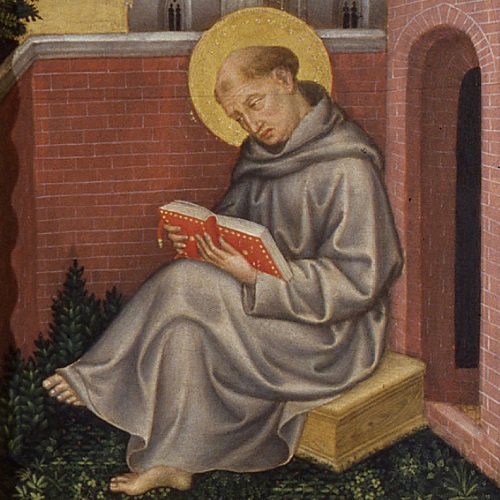
Tuesday Jul 10, 2018
St. Thomas Aquinas and the Emotion of Courage with Dr. Stanley Grove
Tuesday Jul 10, 2018
Tuesday Jul 10, 2018
According to St. Thomas Aquinas, courage is an emotion before it’s a virtue. It’s something that arises in us naturally when we are faced by something we perceive as evil.
At the Wyoming School of Catholic Thought, we discussed St. Thomas’s understanding of the emotion or passion of courage with the help of Dr. Stanley Grove.
Dr. Grove pointed out that the passions are buried deep down in Thomas’s understanding of human nature. Through our rational nature, we take the world in with our intellect and reach out to the world with our will.
We sense the world through the animal aspect of our nature, that is the part we share with other animals who, while they are not in the image of God, also have bodies and live in the physical world. This includes our senses and our emotions or passions.
Dr. Grove is our guest for this After Dinner Scholar.
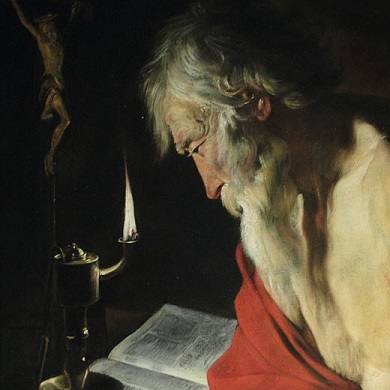
Tuesday May 08, 2018
Reading and Believing: De Verbum with Prof. Kyle Washut
Tuesday May 08, 2018
Tuesday May 08, 2018
In the second century AD, St. Irenaeus wrote, “We have known the method of our salvation by no other means than those by whom the gospel came to us; which gospel they truly preached; but afterward, by the will of God, they delivered to us in the Scriptures, to be for the future the foundation and pillar of our faith.”
Of course, just how the Scriptures serve as “the foundation and pillar of our faith” is a complicated question. Is it sufficient on its own as most of our Protestant friends believe? Or does it require the hand of the Church and of tradition lest we be led astray? Is interpretation open-ended, subject to the ideas and spirit of every age? Or is there a right and a wrong way (or assorted wrong ways) of understanding the Scriptures?
Professor Kyle Washut has been considering those kinds of questions with our freshmen looking at, among other texts, De Verbum from the Second Vatican Council. Professor Washut is our guest this week on The After Dinner Scholar.

